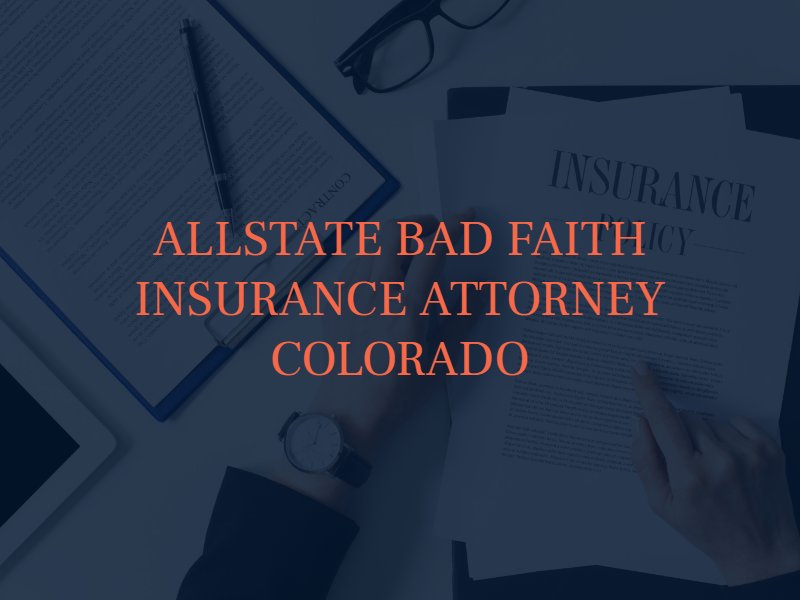Allstate is one of the leading insurance corporations in the United States, with around 16 million customers. If you get into a car accident in Denver, the odds are high that either you or the other driver will be covered by Allstate.
Unfortunately – despite the company’s slogan – you are not in good hands with Allstate. Like all insurers, Allstate is a for-profit company that wants to increase its profit margin as much as possible. This can mean facing bad-faith insurance tactics during the claims process.
What Is Bad-Faith Insurance?
Insurance providers have a duty of good faith and fair dealing by law. This means that an insurer must process a claim in an honest and good-faith attempt to resolve it in a way that fulfills the terms of the contract. If an insurance company breaches the covenant of good faith and fair dealing, it is known as insurance bad faith. Bad faith is more common than most customers realize, as insurance companies are experts at taking advantage of claimants to save money. Examples of bad-faith insurance in Colorado are:
- Misrepresenting the terms of an insurance policy at the time of purchase.
- Misinterpreting the language of a policy during a claim.
- Taking too long to reply to your claim (longer than 30 days).
- Requiring an excessive amount of documentation or proof of your losses.
- Failing to properly investigate the claim.
- Wrongfully denying a claim without giving a reason or with no valid explanation.
- Unfairly delaying the investigation or processing of your claim.
- Offering a settlement that undervalues the price of your medical bills and property repairs.
- Failing to offer a reasonable settlement even when liability is clear.
- Delaying the payout of your claim after a settlement has been reached.
The protection offered to policyholders against insurance bad faith is the ability to file a bad-faith claim. This is a civil lawsuit brought against the insurance company to demand financial compensation or damages for the insurance carrier’s breach of the duty of good faith. If you or your bad-faith insurance lawyer in Fort Collins can prove your claim, you can receive compensation not only for your original accident claim but also to compensate you for the losses associated with insurance bad faith.

How Can I Identify Bad-Faith Insurance?
If you need to file a car insurance claim with Allstate, be on the lookout from the very beginning of your claim for signs that the company is attempting to take advantage of you. Know your rights as a policyholder – including the right to receive a prompt letter stating that the insurance company has received your claim, the right to say no to giving a recorded statement about your accident, the right to negotiate a fair settlement with the insurance company and the right to a fair settlement based on the facts of your case.
If you run into any issues during your Allstate insurance claim, such as the company taking weeks to get back to you or rejecting your claim without cause, contact an attorney who handles bad-faith insurance right away. A lawyer will listen to your story – often for free during a no-cost consultation – and let you know if you have grounds for a bad-faith claim. If so, the lawyer may offer to represent you and go up against Allstate on your behalf.
Are You a Victim of Allstate Bad-Faith Insurance? Contact Cannon Law
Allstate is a multibillion-dollar company that has an aggressive legal team prepared to fight allegations of bad faith. Level the playing field by hiring a skilled and experienced lawyer. At Cannon Law, you won’t pay us anything in attorney’s fees unless we succeed in securing financial compensation for your insurance bad-faith claim. We have recovered millions of dollars for our clients and will work relentlessly to achieve the results that you deserve.
Learn more about how we can help you with an Allstate bad-faith insurance claim today. Contact us at (970) 471-7170 to request a free case review.